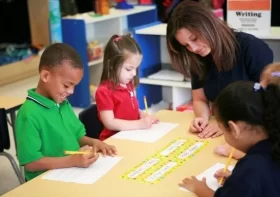Why do kids have to go to school

First and foremost, education serves as a fundamental right and a pathway to opportunity for every child. It is enshrined in various international conventions and national laws as a fundamental human right. Access to education equips children with the knowledge and skills necessary to navigate the complexities of the modern world. It empowers them to become informed citizens capable of contributing positively to their communities and society at large.
Beyond its intrinsic value, education also plays a pivotal role in socioeconomic development. Studies consistently demonstrate a strong correlation between education and economic prosperity. Education fosters innovation, entrepreneurship, and workforce readiness, thus driving economic growth and reducing poverty. By investing in education, societies invest in their future workforce, ensuring a skilled and knowledgeable populace capable of driving progress and innovation.
Moreover, education is crucial for fostering social cohesion and promoting inclusivity. Schools serve as melting pots where children from diverse backgrounds come together to learn, interact, and form bonds. This exposure to diversity fosters empathy, understanding, and tolerance, laying the groundwork for a more harmonious and inclusive society. Education also plays a vital role in challenging stereotypes, prejudices, and discrimination, promoting equality and social justice.
Additionally, education serves as a bulwark against ignorance and misinformation. In an era marked by rapid technological advancements and information proliferation, the ability to discern fact from fiction is more critical than ever. By providing children with critical thinking skills, information literacy, and a thirst for knowledge, education empowers them to navigate the complexities of the information age responsibly. It equips them with the tools to question, analyze, and evaluate information critically, fostering a culture of lifelong learning and intellectual curiosity.
Furthermore, education is essential for personal development and self-fulfillment. It provides children with opportunities for intellectual growth, self-discovery, and personal enrichment. Through education, children explore their interests, talents, and passions, discovering their unique strengths and potentials. Education also nurtures essential life skills such as communication, collaboration, and problem-solving, equipping children with the tools to thrive in all facets of life.
Critically, education serves as a bulwark against societal challenges and threats. It is a potent antidote to various social ills, including crime, substance abuse, and extremism. By providing children with opportunities for education, societies invest in crime prevention, public health, and national security. Education empowers individuals to make informed choices, resist negative influences, and contribute positively to their communities, thus fostering social stability and resilience.
Moreover, education is essential for environmental sustainability and stewardship. In an era marked by environmental degradation and climate change, education plays a crucial role in promoting environmental awareness, conservation, and sustainable development. By instilling in children a sense of environmental responsibility and ecological literacy, education empowers them to become custodians of the planet, advocating for policies and practices that safeguard the environment for future generations.
In conclusion, the imperative for children to attend school stems from a myriad of interconnected factors encompassing individual rights, societal development, economic prosperity, social cohesion, intellectual enlightenment, personal fulfillment, and global sustainability. Education is not merely a privilege but a fundamental human right and a cornerstone of a thriving, equitable, and inclusive society. As such, ensuring universal access to quality education for all children is imperative for building a brighter and more prosperous future for generations to come.




Leave a Reply